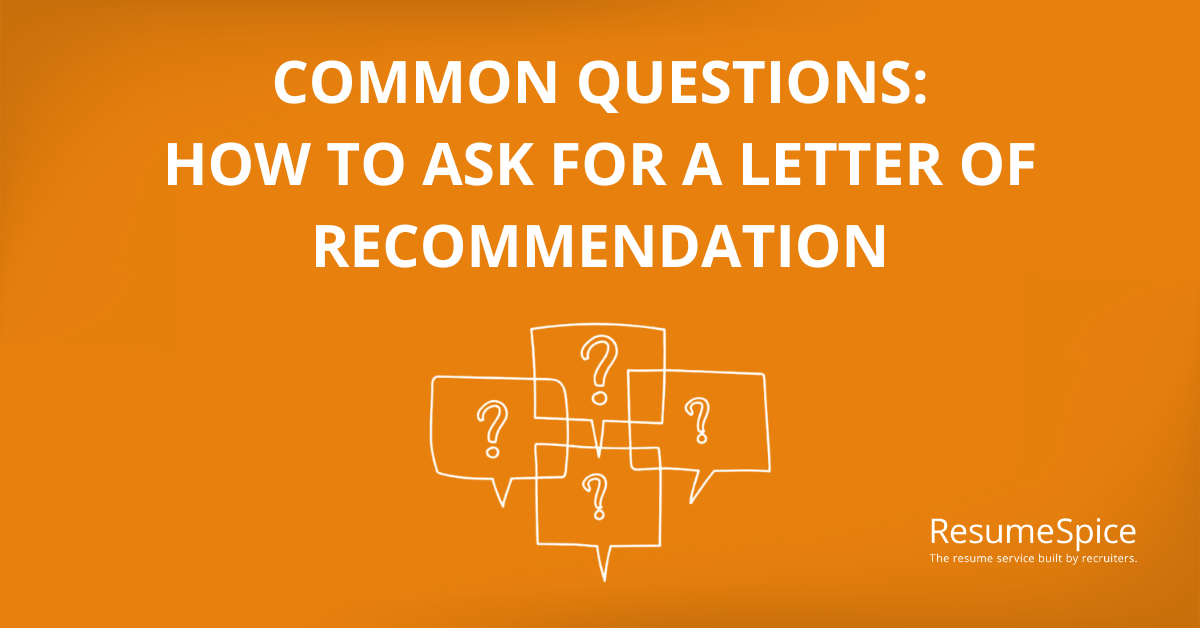How to Ask For A Letter of Recommendation

As Seen In:




If you are active in the job market, it is likely that one of the next items on your to-do list is to obtain a letter of recommendation. Having a stamp of approval from a manager or mentor not only can set you apart from other applicants, but gives employers a first-hand look into how you work and what sort of attributes you bring to the table.
In this guide, we are going to go over best practices on how to ask for a letter of recommendation, and break it down to a few simple steps: choosing the right person, crafting your request, and providing the key information the recommender needs.
Key Takeaways
A letter of recommendation is a personalized document from a selected manager or mentor that corroborates your resume by providing external confirmation of your character, work habits, and professional achievements – enhancing your application and personal narrative to employers.
Selecting the right recommender is crucial, choosing someone with firsthand knowledge and recent interaction, who can attest to your skills and accomplishments.
When requesting a recommendation, approach with respect for the recommender’s time, provide all necessary information, handle rejections graciously, follow up politely, express thanks after receiving the letter, and consider digital alternatives like LinkedIn recommendations.
The Importance of a Letter of Recommendation
When you present a letter of recommendation during the job application process, be sure to give this document extra time and attention; you’re offering a testament to your character, work ethic, and professional prowess.
Third-party endorsements hold significant power, as they paint a comprehensive portrait of your professional promise, and confirm the authenticity of your resume and interview claims. Imagine the scales tipping in your favor as hiring managers read about your past triumphs, nodding in agreement with the strong recommendation penned by your previous supervisor, envisioning you as the perfect fit for their team – this is what we want to ensure.
✨Tip: Keeping track of the status of recommendation letters and the communication around them can quickly become overwhelming on top of other application activities. Check out our blog around how to stay organized during your job search.
Selecting the Right Recommender
There should be strategic thought behind choosing your professional vouch, as the right person can make or break your chances of landing your next role. You should also aim to choose someone whose words have impact, drawing from a relationship rooted in mutual respect and firsthand knowledge of your abilities. Remember, this is the person who will be representing you to your future employer.
Professional Relationship
When choosing who should recommend you, it is not just about going down the list of who you know, but who do you know that has a depth of professional knowledge about you, and has the capacity to vouch for you. A solid recommendation should ideally come from someone in a supervisory role, who you have recently worked with closely, and who clearly understands your strengths and work ethic. They’ve seen you in action from the boss’s chair, witnessing firsthand how you handle the daily ups and downs, face tough situations head-on, and grow with each challenge thrown your way.
✨Tip: If you are looking to highlight certain aspects of a project, or day-to-day interactions, it is appropriate to obtain a letter of recommendation from a colleague in addition to a supervisory recommendation.
Recent Interaction
A job recommendation gains relevance from the recency of the relationship. That former manager who has worked closely with you within the last year or on the last two projects is ideally positioned to comment on your current skills and contributions. This recent interaction ensures they can provide specific examples and meaningful insights, painting a picture of you as an employee that’s both accurate and fresh.
A recommender distant in time may unintentionally paint your professional portrait with broad and faded strokes, lacking the vivid details that bring your candidacy to life.
✨Tip: If the relationship with your latest manager was not great, we would not recommend asking them for a recommendation letter – a neutral or negative review could potentially hinder your future employer’s perception of you in the interview process. Opt for a supervisor or mentor from a different role. You want to be sure to choose someone who is on your side and will advocate for you.
Knowledge of Skills and Accomplishments
It’s important to choose a recommender who has observed your achievements and resilience firsthand. They are the ones who can attest to your potential for future success, having seen your past behavior. Ensuring that this individual has a substantial understanding of your professional background means they can authentically endorse your qualifications and skills.
A recommendation letter that highlights specific areas of strength and particular projects you’ve excelled in offers specific evidence of your capabilities. To construct a compelling narrative in your letter, it’s essential to pick a letter writer who’s not just familiar with your work but can also recall and articulate your accomplishments with clarity and conviction.
Requesting the Letter: Best Practices
Having identified a candidate for your recommendation letter, it’s now appropriate to strategize on how to make the request. This step requires tact, respect for the recommender’s time, and a clear understanding of the process to ensure the outcome is a strong and supportive letter that complements your job application.
✨Tip: Need assistance facilitating the recommendation reach out or drafting your request email? We’ve got you covered. Our team offers coaching and writing help, ensuring you are putting your best foot forward.
Timing
When it comes to requesting a recommendation letter, timing is important. Reach out to your potential recommender at least a month in advance. This window of time is a courtesy that allows for the crafting of a letter that’s thoughtful, detailed, and devoid of the rush that often accompanies last-minute requests. It shows that you value their time and input, and that you’re organized and considerate in your job search efforts.
Communication Method
Your choice of communication method can significantly impact the success of your request. Whether you opt for a face-to-face conversation, a phone call, or an email, depends on the nature of your relationship with the recommender and your communication style.
An in-person request can convey sincerity and allows for immediate interaction, while a phone call strikes a balance between personal connection and convenience. An email is practical and gives you time to compose your thoughts, but be mindful that the written word can sometimes fall flat.
Providing Necessary Information
To facilitate a standout recommendation, equip your recommender with all the ammunition they need.
Supply your recommender with:
A friendly, professional note, and overview of your request.
The deadline for submission.
Details about the position and company you’re applying for.
A snapshot of your skills and achievements, perhaps through an updated resume or a summary of your qualifications.
Offering to provide additional materials shows that you’re invested in the process and eager to assist them in portraying you in the best possible light.
Crafting the Perfect Email Request
If an in-person request or phone call isn’t feasible, your next best option is to draft a well-crafted email asking for the recommendation letter. This email should be a blend of professionalism and personal touch, beginning with a respectful greeting and a clear explanation of why you’re reaching out.
Illuminate the positive aspects of your relationship with the recommender, and remind them of the mutual respect and shared experiences that form the basis of your request. Sign off your email with heartfelt thanks and a note about any additional information they may require, guiding them towards resources that can help them structure their recommendation.
Example Email Request:
Hi Ben,
I hope you’re doing well. I’m reaching out because I’m in the process of exploring new career opportunities, and I could really use your help.
Would you be willing to write me a letter of recommendation? Your support would mean a lot to me, especially considering the impact you’ve had on my growth during my time at ABC Agency.
You’ve seen firsthand how I’ve grown in areas like social media management, art direction, account management, and client communication. I believe your endorsement could make a big difference as I pursue my next steps.
If you need any details or materials from me to make this easier, please don’t hesitate to ask. I’m more than happy to provide whatever you need. If this is something you can help with, it would be great to get back your recommendation by the 25th.
Thanks so much for considering this, and for everything you’ve done for me during my time at ABC Agency. I really appreciate it.
Best,
Jenn Rodriguez
Handling Rejections and Hesitations
Despite careful planning, you might still face obstacles, such as a recommender who shows reluctance or outrightly declines your request. Recognize the signs of discomfort or reluctance, such as vague responses or mentioning company policies. If they do decline, respond with gratitude and a request for feedback, a learning experience that can refine your approach in the future.
✨Tip: Did your first choice say no? Don’t worry. Pivot and reach out to other individuals who can provide that strong endorsement. Letters of recommendation can truly enhance your chances of tipping the hiring manager’s opinion towards in your favor.
Following Up and Showing Gratitude
Receiving the letter isn’t the end of the process; following up and expressing gratitude are key to maintaining strong professional relationships. Send a polite follow-up email to ensure the letter is on track for submission. Once you’ve received their letter, writing them back a handwritten thank you note can leave a lasting impression, acknowledging the effort and time invested by the recommender to write letters.
A thoughtful note arriving in a timely manner, about a week after the application process has concluded, will not only convey your appreciation but also serve as a pleasant reminder of your successful collaboration.
LinkedIn Recommendations: The Digital Alternative
In today’s digital era, where an online presence holds similar weight to a physical one, LinkedIn recommendations act as a testament to your professional credibility. These endorsements live on your profile for all to see, a growing collection of praises that speak to your abilities and character.
Requesting a LinkedIn recommendation is as simple as navigating to your connection’s profile or your own Recommendations section and sending a personalized request. Remember, while you can send multiple requests overall, each must be individualized, and once sent, the relationship details are locked in unless the initial request is deleted.
LinkedIn Recommendation Request Example:
Hi Kayla,
I hope you’re doing well! I’m reaching out because I’m sprucing up my LinkedIn profile and I was wondering if you’d be willing to write me a recommendation.
Specifically, I’m aiming to highlight my skills in social media management, art direction, account management, and client communication – areas where your guidance and support were crucial during my time at XYZ Agency.
Your endorsement on LinkedIn would really help showcase my strengths to potential employers as I explore new opportunities.
Let me know if you’re up for it, and if there’s anything you need from me to make the process easier.
Thank you!
Jenn Rodriguez
✨Tip: Already on LinkedIn? Peruse our blog on how you should be optimizing your linkedin profile to best stand out in the job market.
Summary
We’ve walked through the art of securing a letter of recommendation, from understanding its importance, to crafting the perfect request, and engaging with digital alternatives on platforms like LinkedIn. As you navigate your job search, remember these golden rules: select the right recommenders, request with professionalism and respect, and always show gratitude for the time and effort given on your behalf.
Q&A
What is the ideal number of recommendation letters to include in a job application?
Including two to three recommendation letters in a job application is usually sufficient, but it’s important to adhere to any specific instructions from the employer.
How do I choose between multiple potential recommenders?
Choose recommenders with a strong, recent professional relationship with you who can provide specific examples of your work and speak to your qualifications. This will ensure that your recommendation letters are impactful and relevant.
Should I provide a template or example for my recommender to follow?
Yes, it’s a good idea to provide an outline or key points for your recommender to include in the letter, along with examples of strong recommendation letters for reference. This can help guide them and ensure they cover all necessary points for a strong recommendation.
Is it appropriate to ask a colleague for a recommendation instead of a supervisor?
It’s generally more appropriate to ask a supervisor for a recommendation due to their position and authority within the organization.
Can LinkedIn recommendations substitute for formal letters of recommendation?
No, LinkedIn recommendations cannot substitute for formal letters of recommendation, as they are not typically required by employers.
Looking for Professional Career Guidance?
That’s where we come in. Our dedicated team here at ResumeSpice may be known for being the #1 rated resume writing service in the US, but we do much more than that. Our team is here to help you feel confident in yourself and your skillset and prepared to stand out in the job market. From helping you navigate the intricacies of job application process, like gathering references and recommendations, to guiding you in building out your personal brand, working with you on customized interview prep, tailored career coaching, professional LinkedIn profile writing, and more, we are your resource! Check out all of our career services here, and give us a call at 832.930.7378 or connect with us online.












